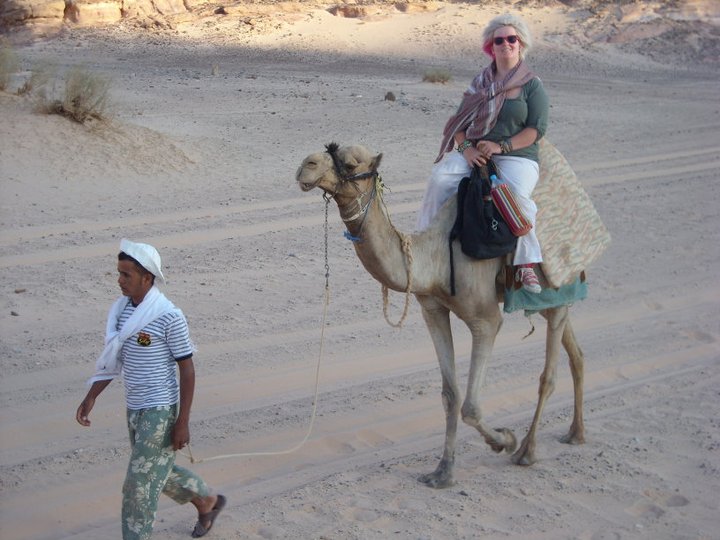
I’ve just gone through a bad break-up, and can’t find the confidence to start dating again because I think no-one will want to date a disabled person.

I’ve just gone through a bad break-up, and can’t find the confidence to start dating again because I think no-one will want to date a disabled person.

I was fortunate enough to travel to Poland, somewhere I’ve always wanted to visit but stereotyped as being cold and inaccessible. Read on to find top tips for accessible travelling…

Sexy and sophisticated. What top tips can you give for first date outfits when using a wheelchair? Click to read more…

I’m 22 and find it easy to meet people – what I don’t find easy is my parents attitudes to me dating, they’re so overprotective!

A new financial year is upon us! Time for well-intentioned plans and clever spending when it comes to yearly budgets, but what could your business do over the next twelve months to help disabled customers, clients or employees? Here are just a few suggestions:
Thinking of employing somebody with a disability? Adapting your organisation premises to suit their needs does not have to cost the Earth, and you only have to make adjustments that a reasonable (think a ground floor desk space and accessible bathroom for a wheelchair user rather than an incredibly expensive lift to enable them to get to the first floor of the building).
You can find out more about reasonable adjustments by visiting: https://www.gov.uk/reasonable-adjustments-for-disabled-workers
Meeting a potential client for coffee? Have you checked if they need somewhere that’s step-free, has provisions for their guide dog, or a hearing loop installation? Is your website kitted out with British Sign Language videos for the Deaf community, and is it suitable for those who use screen readers? Make sure inclusion is on your mind, just as much as sealing the next business deal is (you’re likely to seal many more business deals if it is!)
Even the most accessible and inclusive venue in the world will not be welcoming to disabled customers if the people who work there aren’t. Make sure your staff know how to communicate with disabled people by removing the ‘fear factor’ with us! Visit www.enhancetheuk.org to find out more about the training packages we offer.

Sometimes disabilities are not only invisible, but silent. What happens when you can no longer communicate with your own voice? Click to read more…

Hearty roast dinners, gift giving and cosy open fires. Winter really is a season to tickle your tastebuds and satisfy all the senses. Click to ream more…

It’s tough to gauge how drunk you are until you’re sleeping around the toilet bowl. Click to read more of our wheelie good accessibility tips…

I’ve now been volunteering for over ten years, for causes I care deeply about and with friends I’ve made from all over the world. As a wheelchair user, a huge focus has been on disability awareness and its importance, which has ultimately led me to a brilliant role with Enhance the UK, but still I am often asked why I volunteer when I could be spending that time and energy bettering my bank account. Granted, I have a mortgage to cover and a car to run, but nothing quite compares to the ‘buzz’ of helping out at a major sporting event, a gig, or cheering others on from marathon sidelines…

Volunteering became a meaningful part of my life at the age of 16 when I travelled to southern Africa with the Journey of a Lifetime Trust, a charity that takes young disabled or disadvantaged people literally on a ‘Journey of a Lifetime’ to an exotic location. We rode elephants in Lesotho, climbed sand dunes in Namibia, and cage-dived with sharks off the coast of Capetown, but we also taught in schools and visited HIV/AIDS clinics. This made me want to come back home, share a little bit of what I had experienced overseas, and encourage others to look out for opportunities to help others.

I then joined lots of great societies at Queen Mary, University of London, where I studied English Literature. I also went on a year’s exchange to Melbourne, Australia and helped out in a juvenile prison. All of these experiences opened my eyes. I was no longer going through life in search only of my own progression, and ventures that would help me to succeed. When you unleash that desire to think about and help someone else, and realise that this also helps yourself and makes you a better person, then you’ve unleashed a beautiful potential. And it’s a potential that everybody has.

Nothing quite compared, however, to my experience as a Gamesmaker at the London 2012 Paralympic Games. I made some wonderful friends, got to see the performances of so many incredible athletes, and I even got a personal mention from Sebastian Coe in his Closing Ceremony Speech! I had told him that the Paralympic Games had ‘lifted a cloud of limitation’ for anyone who may have previously been seen as limited, be it through a physical impairment, or even a lack of confidence to follow their dreams. I was lucky enough to also help out at the Glasgow 2014 Commonwealth Games (a city I totally fell in love with, and where I now live!) and the 2016 Olympic and Paralympic Games in the incredible Rio, an amazingly vibrant city I consider to be my second home.

On a broader scale, this is what volunteering does for me. When asked, I can never ‘put a finger’ on why I do it, but to know that I’ve helped to make something wonderful happen, whether that’s helping a young person with their CV and interview skills, giving an offender hopes and opportunities for when they leave their institution, or being a part of the amazing event that was London 2012: that is one great feeling.
There’s always an opportunity to volunteer with us at Enhance the UK: visit us and see what you think! www.enhancetheuk.org
Hello!
I have an older brother who is pretty far in the disability spectrum and have been hoping for some advice. He has Hypoplasia of the cerebellum which has rendered him mute and unable to walk with I guess you can call autistic traits… that’s the best way I can describe it, it’s a pretty rare disorder.
Being the second child I’ve always acted as secondary caretaker next to my mom for my brother’s care, and having watched him grow up from an emotional teenage boy and mature to adulthood I’ve wondered about whether he’s missing out on those things that which carers shouldn’t speak of. I know because you guys have been covering this topic speaking out for this growingly public community of disabled individuals taking control over their lives on your website that this topic is at least coming to the forefront which is awesome given the stigmas.
But for those individuals that have a more difficult time communicating or are just farther up in the disability spectrum, do you have any advice? This is an extremely complicated topic I know.
He loves magazines and used to have a big crush on certain actresses, would it be weird getting him x-rated mags? I just recently started broaching this subject with my mother, who’s had a hard time in the past with doctors giving poor or entirely wrong diagnoses on my brother’s symptoms i.e. proclaiming he’s def despite loving music so for such a grey area it seems like a far fetched topic to broach with them. (more often than not doctors will answer inquiries from my mother with “really you know just about better than we do”) So we’re pretty much in the dark, there’s not much input out in the media yet and really it’s sort of a pioneering topic so I figured I’d send a shout out to you guys since you seem to have had some experience with this. I just don’t want to do something that might inadvertently freak him out or get him misguided since I don’t know how I can teach him whats inappropriate or not.
Any input helps, and good job to you guys for what your doing.
Hi there,
Thank you so much for your message and kind words. Firstly, it’s amazing that you are looking out for your brother and all of his needs, rather than just the ones that society deems appropriate! You couldn’t be more ‘spot on’ with what you say, and the way that disability and sex is portrayed needs to change… and quickly!!
In terms of how you can help your brother and what may be deemed appropriate, my response would be that that is entirely up to you as you also need to feel comfortable with what you are assisting with, too. Some relations and friends of people with disabilities do help them to explore their sexuality with x-rated mags or sensual videos, we’ve also had questions regarding masturbation and seeing sex workers. The answer is that there’s no right or wrong way to deal with your brother’s sexual needs, as long as both him and you are comfortable with whatever you decide.
In my opinion though, these magazines sound like they’d be the perfect ‘ice breaker’ for you, your brother and your family. If nothing else, you’re showing your brother that you are there for him and recognise him as a man with desires, and this is quite something when others can just see disability.
Have you seen our ‘Undressing Disability’ video? It can be found here and documents a really powerful story in a lovely way and I think you and your family may benefit from watching it. https://www.youtube.com/watch?v=RwSsPiCEI-0
Anything else I can help with, just shout. I’m always on hand to discuss these things further and in more detail if you’d like to do that. Fingers crossed for a great experience for all of you!